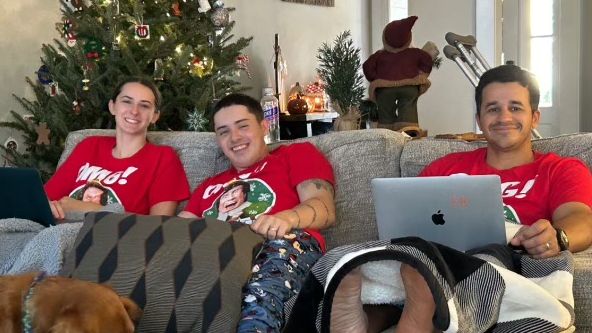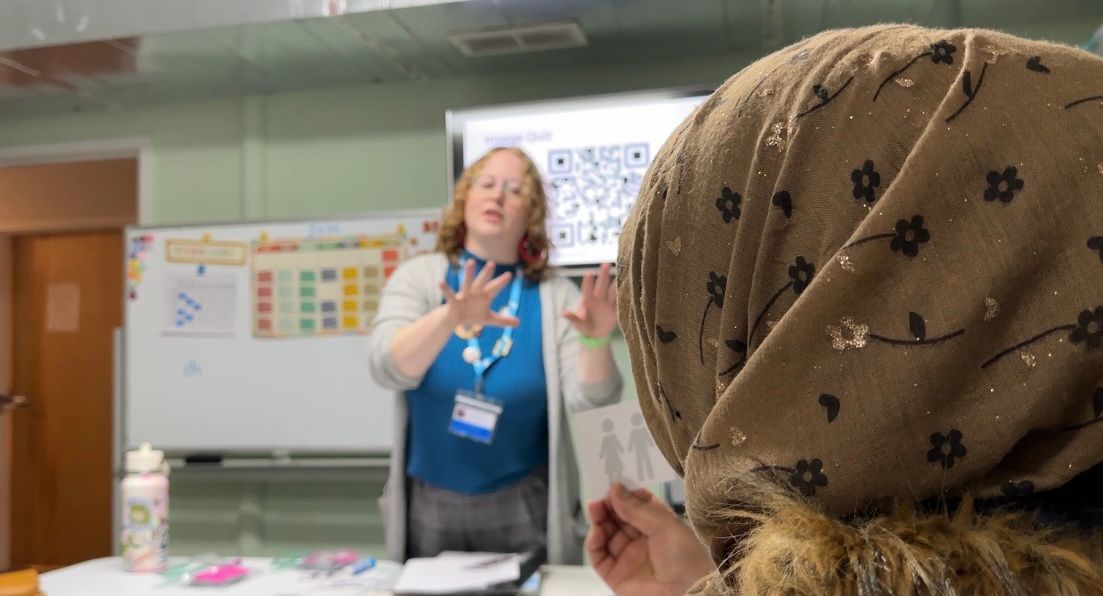GREENSBORO, N.C. — Kids aren’t the only ones looking to go to the pool or get special treats in the summer heat. Animals at the Greensboro Science Center are also finding ways to keep cool.
What You Need To Know
- Keepers at the Greensboro Science Center are finding creative ways to keep their animals cool
- Some of the animals don't show signs of feeling unwell as it is often a form of weakness in the wild
- Animals such as the cassowaries have access to choose if they would like to be inside with air conditioning or outside
- Besides the heat, the lack of rain is creating other struggles of keeping their animals and keepers healthy and cool
Michael Motsch is the lead keeper for pygmy hippos Holly, Ralph and Huckleberry, along with cassowaries Dodo and Moana.
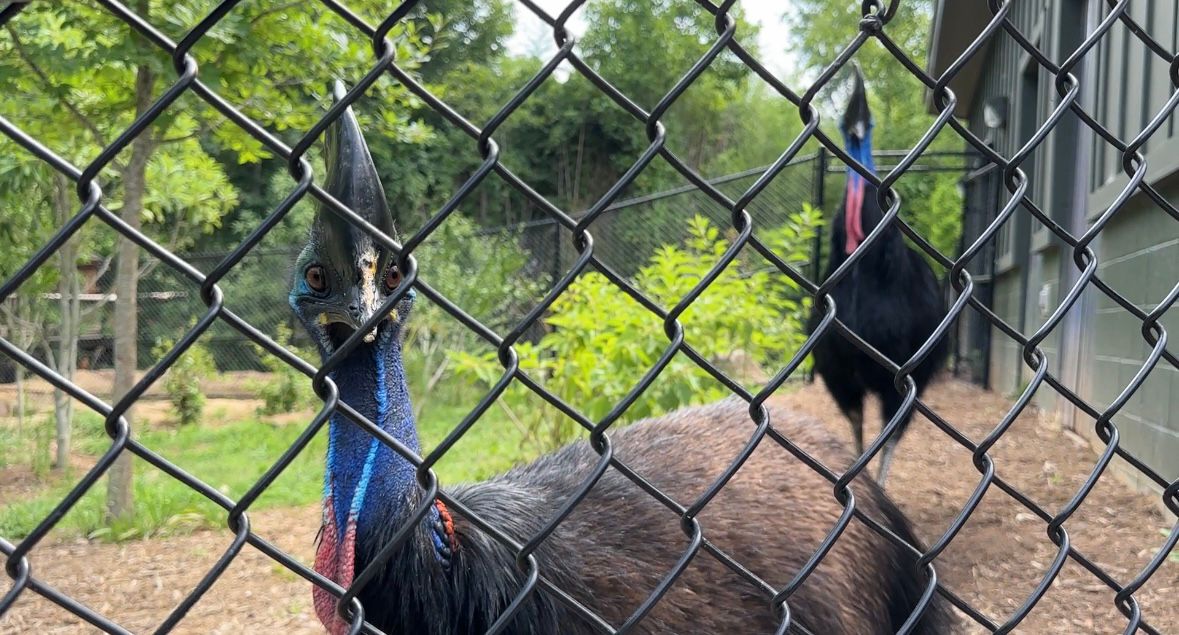
“I always watch Steve Irwin and he always captivated me, and I always liked seeing all the animals,” said Motsch, who has been working at the Greensboro Science Center for about 9 years.
He makes sure that each animal he oversees has the best overall care year round, especially when temperatures are extreme.
“With intense weather, there are restrictions for temperature. They [Dodo and Moana] will be locked inside if it's 35 degrees or below. If we have 110, depending on behavior, we will lock them inside with the A.C. But they are from a tropical, semi-tropical climate, so they are very hardy with temps,” said Motsch.
Animals such as the cassowaries get access to their inside and outside areas of their enclosure and air conditioning almost 24/7, other than when their habitat is being cleaned. Hot temperatures can bring other measures to keep animals cool, including misters, sprinklers, granite slabs, cold treats, ice beds and more.
“It's all just kind of a different combination based on the animal and what they like and what they're comfortable with. But, we try to do what we can and just give them a lot of choices,” said Jessica Hoffman, the vice president of animal care and welfare at the Greensboro Science Center.
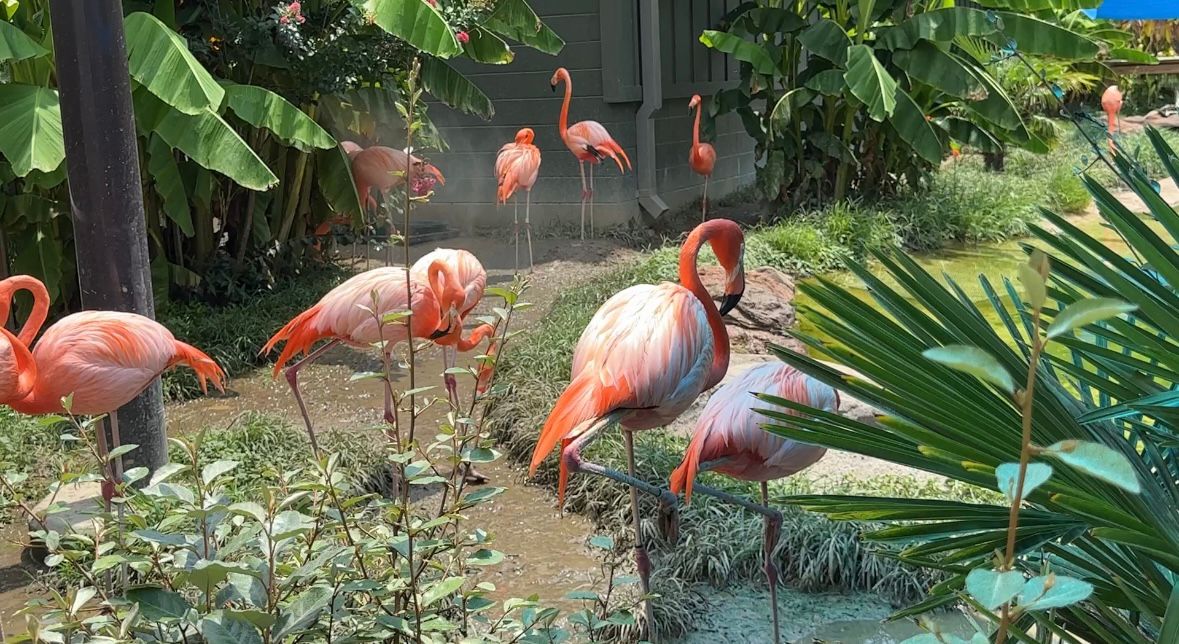
Motsch says not every animal will indicate signs of not feeling well as that is a sign of weakness in the wild. They may also be more affected based on age and ability or do not know when it's time to get out of the heat, like the okapi, which makes it extremely important for each keeper to know every animal's traits.
“You have to be very on top of your toes day in and day out with taking care of these animals, especially in adverse weather, both cold and intense heat,” said Motsch.
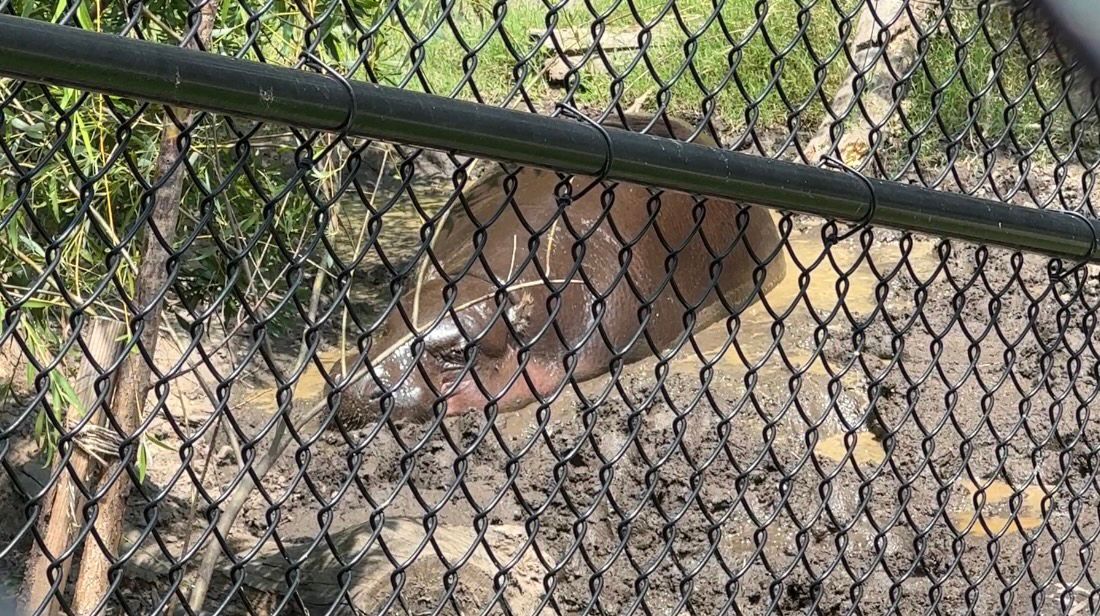
The lack of rain also adds another challenge. Making sure animals such as the pygmy hippos have consistently wet mud for them to cool off in and altering the grounds keeping is vital as the conditions can dry up some of the animals' food sources.
“We still have the humidity, no rain, so we still get really dried out. And so then, now we have this dust factor on top of everything else. So, it's already hot. It's hard to breathe. The humidity is bad. Especially in some of these environments, all that dust just gets kicked up and it's not good for the animals. Breathing that in, our staff, when they're trying to clean, and soc, it just makes an already uncomfortable environment even more uncomfortable,” said Hoffman.
Some animals may be inside due to sensitivity of the heat, like the Red Pandas, but Motsch says the best chance to see animals is in the morning in the cooler weather.
“Just like we have to take care of all of our animals here and think about all of their kind of needs and what they can handle, hopefully folks at home are having those same kinds of thoughts about your own animals at home, whether you have farm animals or pets like cats and dogs,” said Hoffman.






